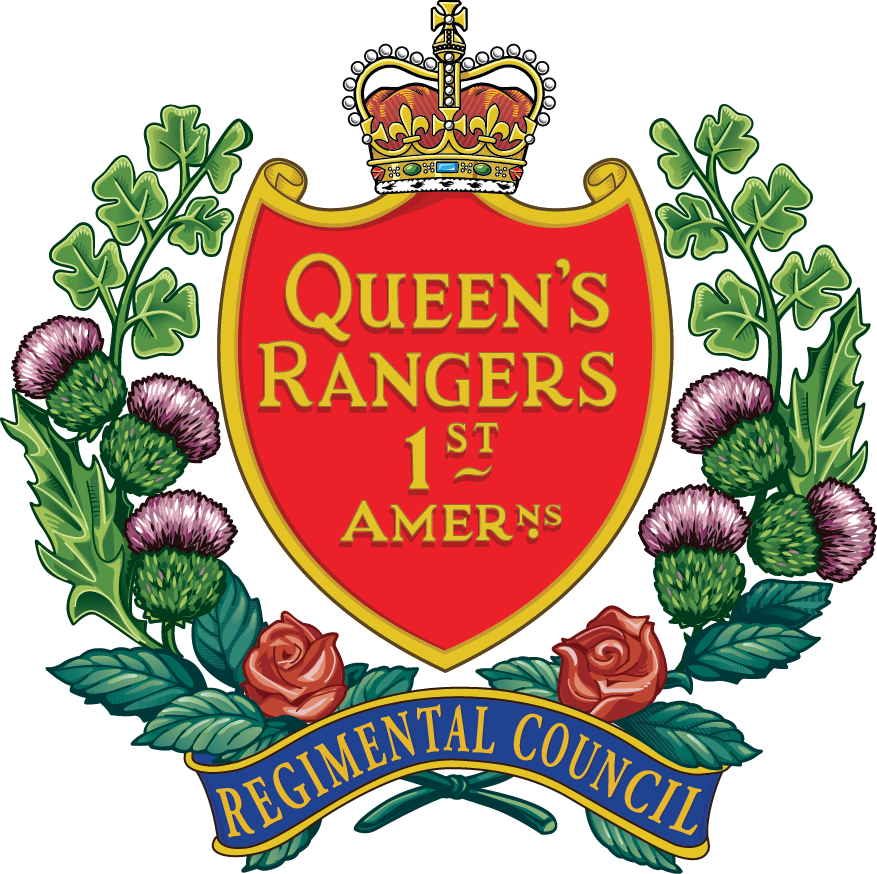Captain Graeme Delamere Black DSO, MC - A Ranger in the Commandos
/The role of the Queen’s York Rangers in the Second World War was limited to its necessary though dull duties on the home front, and the individual exploits of the many men who were trained by the Regiment and who joined other units overseas. One of these individuals, who served with great distinction, is Captain Graeme Delamere Black. On the seventy-fourth anniversary of his death, it is fitting that we remember him and his service.
Black was born on the 9th of May, 1911 in Dresden, ON, the youngest son of the manager of the Dresden Bank of Commerce. During the Great Depression, he moved with his family to London, ON and then to Toronto. Prior to the war, Black served with the Queen’s York Rangers.
By 1939, Black had moved to London, England where he worked making women’s handbags for fashion designer Norman Hartnell. When the war broke out, he volunteered for service with the South Lancashire Regiment, and volunteered again to join the Commandos.
Assigned to No. 2 Commando, he quickly distinguished himself. Black and a number of others from his Commando were attached to No. 1 Commando for Operation ARCHERY, a raid on 27 December, 1941 that aimed to destroy the fish oil factories on the island of Vågsøy and sink any enemy shipping moored there. The raid was executed flawlessly, achieving all of its objectives. While the tactical effect of this and similar raids were limited, the strategic effect was much greater – 30,000 German troops were transferred to Norway from elsewhere in Europe to defend it against possible Allied invasion, at a time when every available soldier was needed on the Eastern Front.
A fantastic newsreel from the period that provides full details of the Vågsøy raid can be found here: http://www.britishpathe.com/video/commandos-raid-norway.
Black was wounded in the shoulder during the raid and was awarded the Military Cross for his leadership. A copy of the original hand-written citation is shown below. He was promoted to Captain shortly thereafter, and appointed as a Troop Commander. He then led his troop during Operation CHARIOT, the famous and successful raid on the St. Nazaire shipyards.
On 11 September, 1942, Captain Black led a party of twelve commandos on Operation MUSKETOON, a raid to destroy the power plant at Glomfjiord, Norway. The power station was of particular interest as it provided electricity to a nearby aluminium plant. Inserted by a submarine of the Free French Navy, they traversed very mountainous terrain to reach their target. On the night of 19/20 September, they split into two parties and attacked the power plant. One party destroyed the water pipes leading into the plant, while the other destroyed the machinery in the turbine room. The damage caused was quite extensive, and the power plant remained out of operation for the remainder of the war.
It was at this point that their plan began to unravel. German troops rushed to the power plant, forcing the commandos to retreat. A small skirmish left one of the commandos, a Norwegian corporal named Erling Djupdraet, with a serious bayonet wound in the stomach. The remaining commandos decided that he was best left for the Germans to provide him medical attention, and they split into two groups to attempt to escape. Djupdraet died of his wound in a German military hospital a few days later.
One group of four men, led by Lance Sergeant Richard O’Brien, managed to evade capture and travel overland to Sweden. They were eventually flown from there to England, landing at RAF Leuchars. O’Brien’s signature in the guest book of the mess at RAF Leuchars can be seen in the attached photograph – the date is 25 October, 1942.
The second group of seven men, led by Captain Black, was quickly captured by the advancing Germans. They were first sent to Colditz Castle, and then to Berlin where they were further interrogated. From there they were sent to Sachsenhausen concentration camp, where on 23 October 1942, in accordance with Hitler’s “Commando Order,” they were executed.
All seven men were officially listed by the German Army as having “escaped,” giving their families false hopes until the end of the war when their true fates became known. Their unlawful execution formed part of the evidence against Field Marshall Wilhelm Keitel, Generaloberst Alfred Jodl, and Generaloberst Nikolaus von Falkenhorst during the Nuremberg trials.
Captain Black was posthumously awarded the Distinguished Service Order for his actions during Operation MUSKETOON. All seven of the commandos executed by the Germans are honoured at the Brookwood Memorial, which recognizes Commonwealth soldiers with no known grave, and a room has been named for Captain Black in the Special Operations Club in London, UK.
Although Captain Black did not serve in the war wearing the cap badge of the Regiment that he first joined, there can be no doubt that throughout his career he displayed the Ranger spirit.




